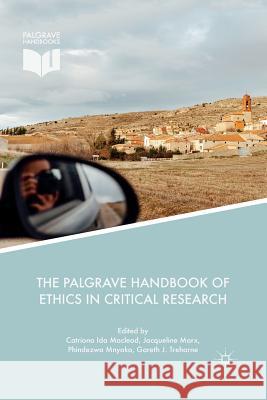The Palgrave Handbook of Ethics in Critical Research » książka
topmenu
The Palgrave Handbook of Ethics in Critical Research
ISBN-13: 9783030090630 / Angielski / Miękka / 2018 / 463 str.
Kategorie:
Kategorie BISAC:
Wydawca:
Palgrave MacMillan
Język:
Angielski
ISBN-13:
9783030090630
Rok wydania:
2018
Wydanie:
Softcover Repri
Ilość stron:
463
Waga:
0.68 kg
Wymiary:
23.39 x 15.6 x 2.51
Oprawa:
Miękka
Wolumenów:
01
Dodatkowe informacje:
Wydanie ilustrowane











